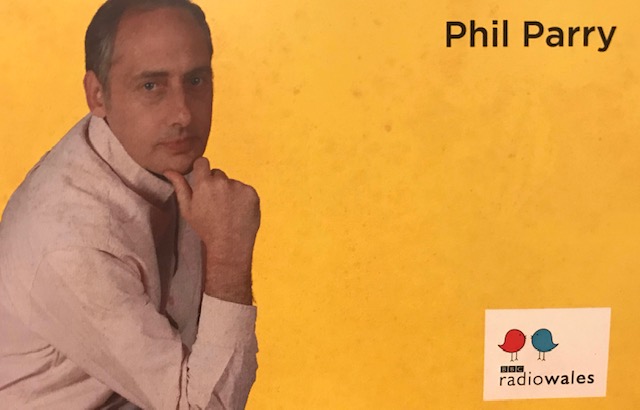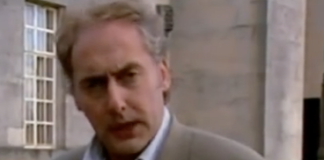- Opposites attract - 26th February 2026
- Upset coffee - 25th February 2026
- Not acting the part - 24th February 2026

After 23 years with BBC Cymru Wales (BBC CW), here our Editor Phil Parry looks with incredulity at how Wales’ biggest broadcaster celebrates its supposed success, when a television news presenter conducted a misguided affair with a senior executive, despite the fact she fronted one of his programmes, tweets about her clothes as well as going to the beach even though the public are governed by lockdown rules, and presented an item which mistook Brighton Pavilion for a mosque.
Earlier he described how he was assisted in breaking into the South Wales Echo office car when he was a cub reporter, recalled his early career as a journalist, the importance of experience in the job, and making clear that the‘calls’ to emergency services as well as court cases are central to any media operation.

He has also explored how poorly paid most journalism is when trainee reporters had to live in squalid flats, the vital role of expenses, and about one of his most important stories on the now-scrapped 53 year-old BBC Wales TV Current Affairs series, Week In Week Out (WIWO), which won an award even after it was axed, long after his career really took off.
Phil has explained too how crucial it is actually to speak to people, the virtue of speed as well as accuracy, why knowledge of ‘history’ is vital, how certain material was removed from TV Current Affairs programmes when secret cameras had to be used, and some of those he has interviewed.
 He has disclosed as well why investigative journalism is needed now more than ever although others have different opinions, how the pandemic played havoc with media schedules, and the importance of the hugely lower average age of some political leaders compared with when he started reporting.
He has disclosed as well why investigative journalism is needed now more than ever although others have different opinions, how the pandemic played havoc with media schedules, and the importance of the hugely lower average age of some political leaders compared with when he started reporting.
An iron rule of journalism is not to blow your own trumpet wrongly.
You should just get on with the job in hand of reporting stories correctly. During a journalistic career of almost 38 years, I know this fundamental fact only too well.
Yet it appears the rule has been broken by BBC Cymru Wales (BBC CW), and workers there (as well as former ones) are deeply unhappy about it. Executives have celebrated their ‘success’ during the pandemic, and officials have released a news ‘story’ concerning the size of their audience.
![]()
A BBC CW online piece stated: “Audiences in Wales turned to BBC programmes in increased numbers during the pandemic, a report has found. A total of 68% of the population used BBC online each week between March 2020 and 2021, up from 60%. And 45% of adults in Wales viewed BBC Wales’ news services on BBC TV channels, up seven percentage points”.
But a former senior executive at the corporation, told me: “The BBC is the national broadcaster. It’s natural that the public turns to it at times of national crisis.

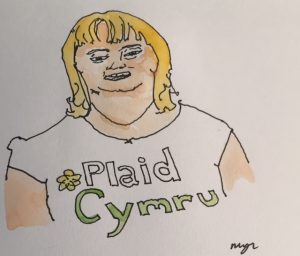 “In Welsh language broadcasting terms it has a monopoly of radio & TV bulletins, and is the solitary supplier. Large portions of this are due to actions by the first minister anyway, and come from Covid briefings”.
“In Welsh language broadcasting terms it has a monopoly of radio & TV bulletins, and is the solitary supplier. Large portions of this are due to actions by the first minister anyway, and come from Covid briefings”.
The online ‘report’ even included warm words from the controversial Director of Content and Services at BBC CW Rhuanedd Richards (a former Chief Executive of Welsh nationalist party Plaid Cymru [PC]), who apparently enjoys using mindless business-speak. I showed earlier how she had said: “We must make more impact and become more relevant to more people rather than super-serving the same people”. This time her quote was: “We know we can do even more to deliver for Welsh audiences – it’s what they demand of us – as we continue to ensure our content is relevant for all and in every part of Wales in a world of competing voices”.
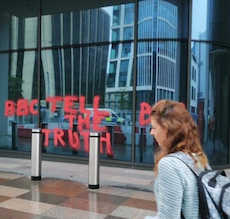 Once again, this means precisely NOTHING!
Once again, this means precisely NOTHING!
In this ‘story’, BBC CW naturally did not mention any of the controversies that have engulfed the broadcaster (Wales’ biggest) which The Eye have highlighted, but the public (who of course pay the wages of executives like Ms Richards through the licence-fee) may like to be reminded of them.
The contentious presenter of BBC Cymru Wales Today Lucy Owen who, presumably, is partly responsible for these “increased numbers during the pandemic” and ensuring that “content is relevant for all”, has also made news of a rather different kind. The married Mrs Owen has presented, too, a BBC Cymru Radio Wales (RW) broadcast, and had carried on a headline-grabbing affair with the Editor Colin Paterson even though his executives had commissioned a programme she fronted. People both inside and outside the corporation have told me that they were worried about this situation.

She also tweeted over Christmas about how she had taken a trip to the beach at Southerndown in the Vale of Glamorgan, yet travel advice from South Wales Police (SWP) at the time warned people against going to beaches, saying: “you shouldn’t be driving to these places”. The Welsh Government (WG) rules, then, also appeared clear: “If you are travelling away from home, you should travel to meet your Christmas bubble and return home in the course of 25 December”.
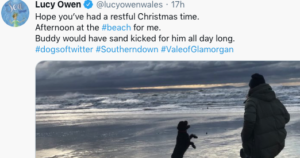 When Mrs Owen made her comment on Twitter, the website ‘Visit the Vale’ had stated: “Wales is now in Tier 4 lockdown. This means that you should not travel to the coast for exercise purposes unless you end your journey on foot… We know it’s difficult, and asking you to stay away is very hard to do…”, with a link to the Welsh Government (WG) site about the rules. One Welsh local authority executive told me: “This is awful. How can the public be expected to follow lockdown rules, when the people who tell them about them are going to the beach?!”.
When Mrs Owen made her comment on Twitter, the website ‘Visit the Vale’ had stated: “Wales is now in Tier 4 lockdown. This means that you should not travel to the coast for exercise purposes unless you end your journey on foot… We know it’s difficult, and asking you to stay away is very hard to do…”, with a link to the Welsh Government (WG) site about the rules. One Welsh local authority executive told me: “This is awful. How can the public be expected to follow lockdown rules, when the people who tell them about them are going to the beach?!”.
When she was presenting WT, programme-makers used a picture of Brighton Pavilion during coverage of the start of the hugely important Muslim month of Ramadan instead of a mosque, and the mistake was then featured in the Brighton Argus.
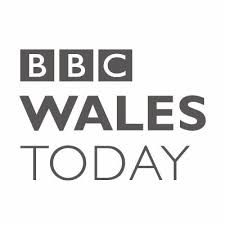
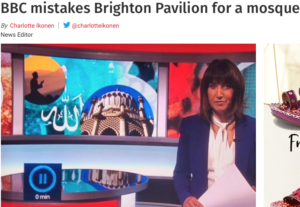 One Twitter user complained: “BBC Wales showing a picture of the Brighton Pavilion and getting it confused for a mosque when talking about Ramadan is kind of f****d?”. Another wrote furiously: “Not happy they’ve used a shot of Brighton Pavilion as though it’s a mosque (presumably)”.
One Twitter user complained: “BBC Wales showing a picture of the Brighton Pavilion and getting it confused for a mosque when talking about Ramadan is kind of f****d?”. Another wrote furiously: “Not happy they’ve used a shot of Brighton Pavilion as though it’s a mosque (presumably)”.
The online ‘report’ about how good BBC CW is, finds echoes in earlier comments by the man in charge. Ms Richards’ contentious boss, the overall Director of BBC Cymru Wales (BBC CW) and Director of Regions Rhodri Talfan Davies, who has proclaimed the importance of local services, saying: “… in the depths of Covid our regional and local services have been a source of news and companionship and support for millions of people”, yet he could, perhaps, have concentrated rather more on his own organisation.
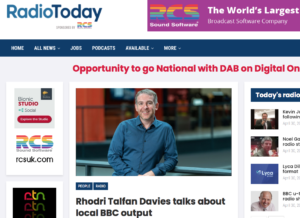 Mr Davies’ speech at the ‘Westminster Media Forum’ was about BBC’s plan for its ‘biggest transformation in decades’. He emphasised the importance of local radio, saying how ‘up to’ six peak time local services will launch. He also underlined the crucial role of the local radio ‘Make a Difference’ campaign and the vital nature of local news.
Mr Davies’ speech at the ‘Westminster Media Forum’ was about BBC’s plan for its ‘biggest transformation in decades’. He emphasised the importance of local radio, saying how ‘up to’ six peak time local services will launch. He also underlined the crucial role of the local radio ‘Make a Difference’ campaign and the vital nature of local news.
Mr Davies declared: “Right now, the BBC’s 6.30pm regional news on BBC One is the biggest show on most weeknights in Britain with more than six million viewers across the UK tuning in”. He added: “The simple truth is that our local and regional services have never mattered more to audiences. Millions of people each day turn to our local output for information they can trust about the communities they love. …We’ll be launching up to six new peak-time BBC local radio services in communities where we know we need to do more – including Bradford, Sunderland and Wolverhampton. And we’ll provide on-demand bulletins on BBC Sounds that are tailored to where you live.
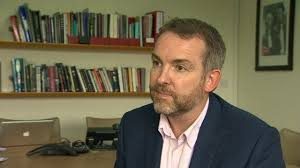
But maybe people need their memories jogged about Mr Davies’ own record. The story by The Eye about his key executive, Mr Paterson, having an having an affair with one of his presenters was included in a Digital Spy (DS) comment with the message above the link saying “…the record low listening figures at Radio Wales under it’s (sic) current management (were) amplified this year by criticism from former award winning reporters and presenters”.
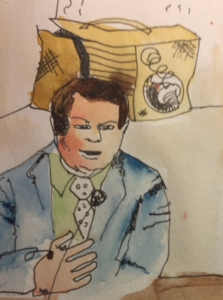 However controversies like these are not the only issues which need to be addressed by Mr Davies. For many staff at BBC CW, Mr Paterson and Mrs Owen’s relationship represented a huge potential conflict of interest because Mr Davies’ officials had commissioned a RW programme hosted by her, called ‘Sunday morning with Lucy Owen’.
However controversies like these are not the only issues which need to be addressed by Mr Davies. For many staff at BBC CW, Mr Paterson and Mrs Owen’s relationship represented a huge potential conflict of interest because Mr Davies’ officials had commissioned a RW programme hosted by her, called ‘Sunday morning with Lucy Owen’.
The work performance of Mr Davies’ appointee, Mr Paterson, at RW (Wales’ only national English-language radio station), has also been open to question, as the DS contributors have alluded to. A recent RAJAR report on listening figures, made grim reading for them both, coming as it did hard on the heels of other low audience statistics.
In 2020 the figures revealed a slight increase on 2019 but a substantial drop compared with two years earlier, a massive decline on the year before that, and how more than 40,000 listeners had been lost in one three month period, despite a huge amount of money being spent on new schedules. They also showed that the total listening hours were 2,667,000, down from 3,074,000 in September 2019 (although up from 2,147,000 in December 2018) and the market share was just 5.5 per cent.

After these numbers were published, a prominent personality described online as one of the main presenters at RW during its launch, renewed his call for Mr Paterson and his superior, Mr Davies, to resign.
Mike Flynn told The Eye exclusively: “Both of these so called media executives (Mr Davies and Mr Paterson) are answerable to the public who pay their salaries via the licence fee and should resign. But they are frightened to reveal the audience for the abysmal Claire Summers programme that replaced Good Morning Wales (GMW). I would like to know what the real figures are across daytimes and weekends and how they waste over £18 million. It is about time they started to answer a few questions.”
 Mr Flynn was equally unimpressed by The Eye’s revelation of Mr Paterson’s affair with Mrs Owen. He told us: “If Paterson has been having an affair with a Wales Today and Radio Wales presenter it brings his management skills in to question and he needs to be suspended immediately”.
Mr Flynn was equally unimpressed by The Eye’s revelation of Mr Paterson’s affair with Mrs Owen. He told us: “If Paterson has been having an affair with a Wales Today and Radio Wales presenter it brings his management skills in to question and he needs to be suspended immediately”.
Perhaps the other aspects to these ‘management skills’ that The Eye have brought into the open, shed a rather different light on their online ‘report’ that “Audiences in Wales turned to BBC programmes in increased numbers during the pandemic”…
Phil’s memories of his astonishing decades long award-winning career in journalism (including some of the stories he covered at BBC Cymru Wales) as he was gripped by the rare neurological disabling condition, Hereditary Spastic Paraplegia (HSP), have been released in a major book ‘A GOOD STORY’. Order the book now!








